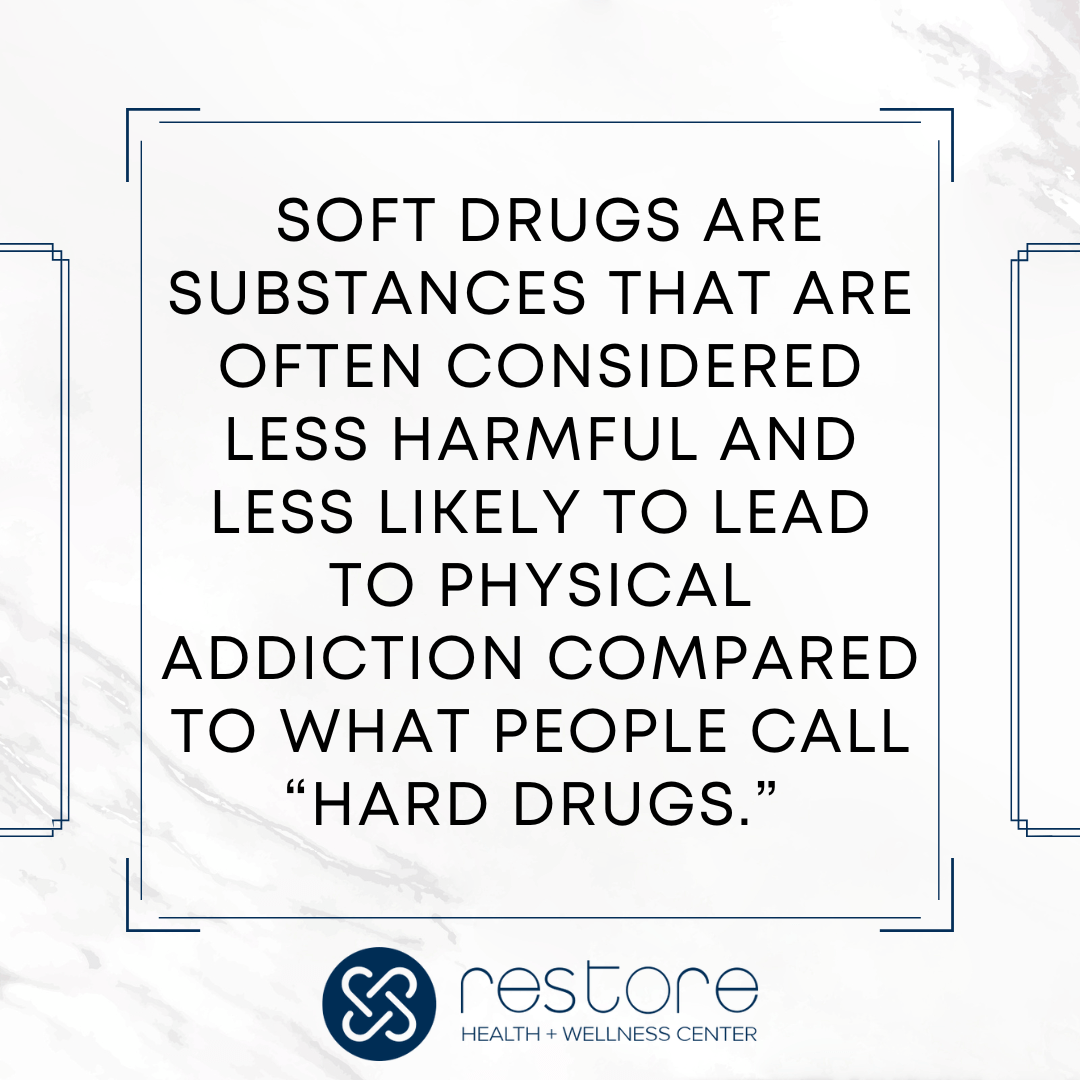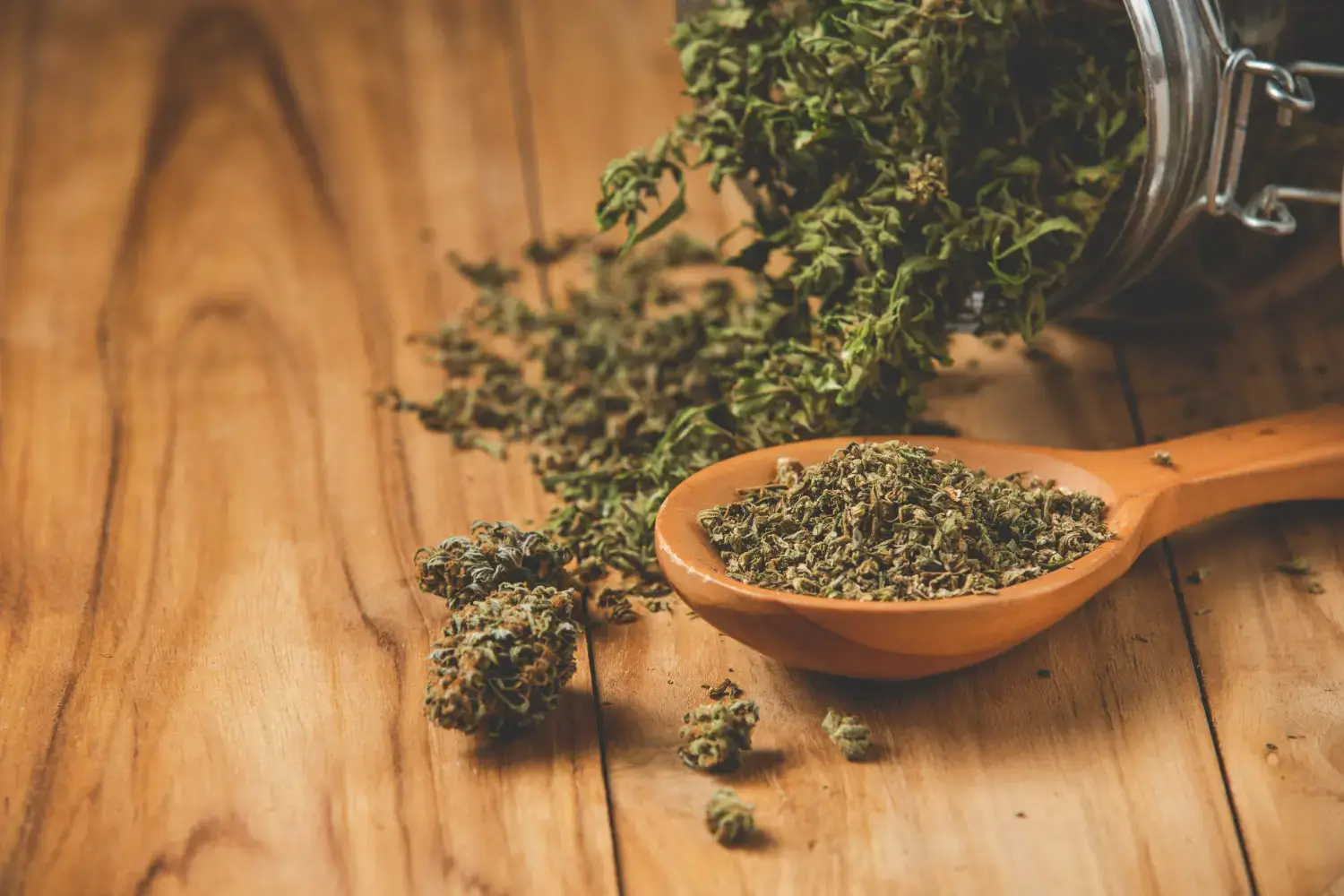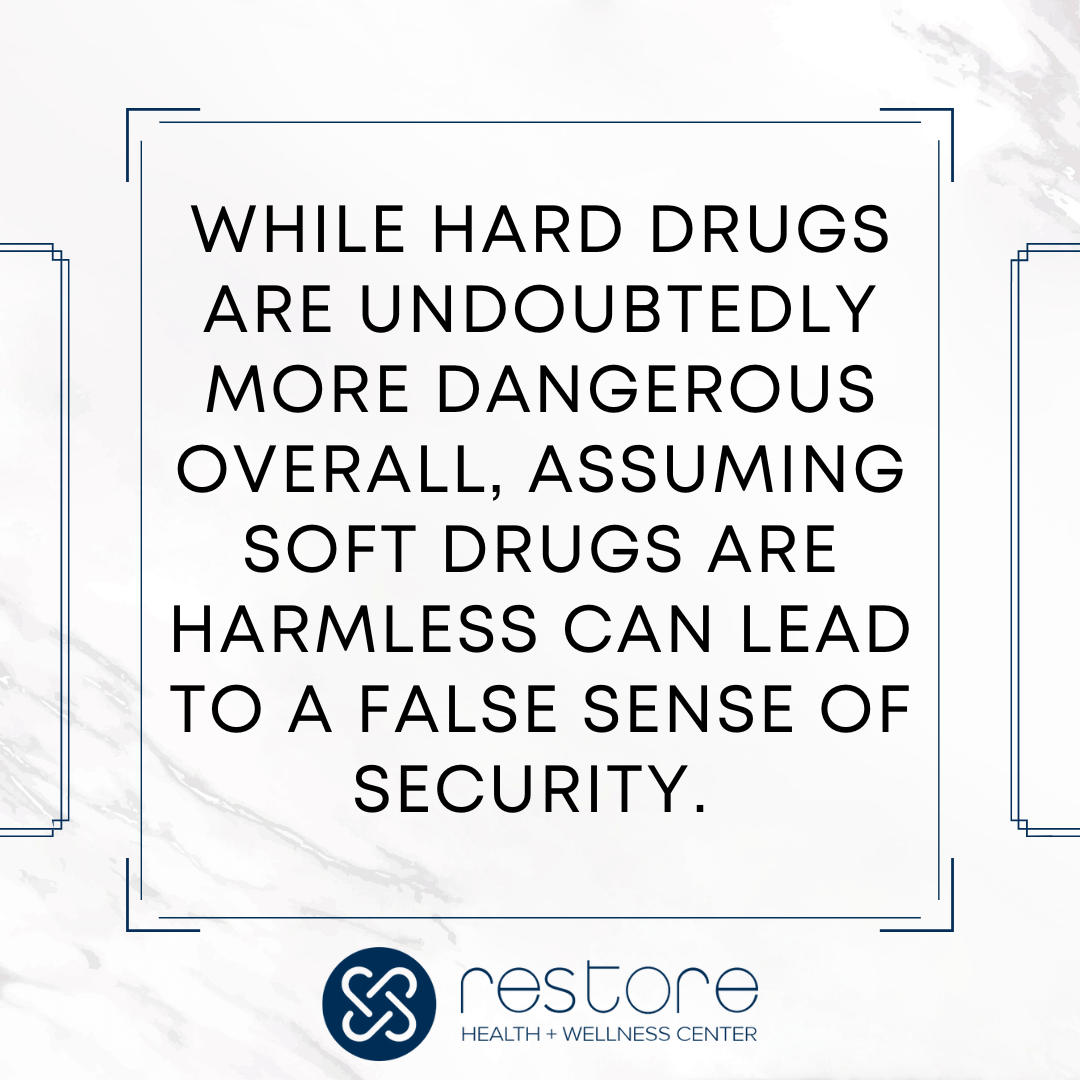
What are soft drugs?
You’ve probably heard someone ask this question when talking about drug safety. But what does it actually mean? In simple terms, soft drugs are substances that are often considered less harmful and less likely to lead to physical addiction compared to what people call “hard drugs.” They’re seen as having milder effects, but that doesn’t mean they’re risk-free.
In this blog, we’re going to break down what soft drugs are, how they differ from hard drugs, and why those labels matter more than you might think.

What are Soft Drugs?
When it comes to understanding what are soft drugs, think of substances like cannabis, psilocybin (magic mushrooms), or even herbal remedies like khat. These are often labeled as “soft” because they’re seen as less harmful and less likely to cause physical addiction compared to “hard drugs” like cocaine or heroin. They’re usually associated with milder effects and a lower risk of severe health consequences when used responsibly.
But why are some substances considered “soft”?
It’s mostly about their perceived lower risk. Soft drugs are thought to be less addictive and less damaging, which is why many people feel more comfortable using them. For example, cannabis is often linked to relaxation or mild euphoria, while psychedelics like psilocybin are known for mind-expanding experiences rather than addictive cravings.
Nonetheless, you should know that “soft” doesn’t mean “safe.”
Even these substances can lead to problems. Overusing cannabis, for instance, might cause memory issues, anxiety, or even dependency. Psychedelics, while less addictive, can still trigger harmful psychological effects if used recklessly or in the wrong setting. It’s all about understanding the risks and knowing how to use these substances responsibly.

What Are Hard Drugs?
Now, you might be wondering, What are hard drugs? And what sets them apart from soft drugs?
Hard drugs refer to substances that are highly addictive and carry a significant risk of severe health consequences, both physical and mental. Examples include:
- Heroin
- Methamphetamine
- Cocaine
- Substances like fentanyl
These drugs are known for their powerful effects and the devastating toll they can take on your body and mind, even after short-term use.
The high risk of addiction is one of the defining features of hard drugs.
Substances like heroin and methamphetamine can create a strong physical and psychological dependency, making it incredibly difficult to stop using once you’ve started. On top of that, they often lead to severe health problems, such as organ damage, cardiovascular issues, and even life-threatening overdoses. For example, cocaine’s intense rush comes with serious risks like heart attacks and strokes, while methamphetamine can cause irreversible brain damage over time.
However, it’s important to note that the distinction between soft and hard drugs isn’t always as clear-cut as it seems. While hard drugs are undoubtedly more dangerous overall, assuming soft drugs are harmless can lead to a false sense of security. Even so-called “soft” substances like cannabis or psychedelics can have serious consequences if misused or overused.

Difference Between Soft and Hard Drugs
When comparing what are soft drugs to hard drugs, you must examine key aspects like addictiveness, physical harm, legality, and societal perception. Here’s how they differ:
Addictiveness
- Soft Drugs. They are generally considered less addictive. For example, cannabis may lead to psychological dependency, but it’s less likely to cause physical addiction.
- Hard Drugs. They are highly addictive, with substances like heroin and methamphetamine creating strong physical and psychological dependencies.
Physical Harm
- Soft Drugs. Experts associate them with milder effects, though they can still cause harm. Long-term cannabis use, for instance, may lead to memory issues or mental health challenges.
- Hard Drugs. They pose significant health risks, including organ damage, brain damage, and a high potential for overdose.
Legality
- Soft Drugs. They are increasingly decriminalized or legalized in some regions, particularly cannabis, which is often seen as therapeutic or recreational. For example, in California, you can buy cannabis if you are 18 or older with a physician’s recommendation for medicinal use, or 21 or older for adult use.
- Hard Drugs. They remain illegal in most countries due to their high potential for harm and societal impact.
Societal Perception
- Soft Drugs. They are often viewed as less harmful, which can lead to a false sense of security about their risks.
- Hard Drugs. They are widely stigmatized due to their association with addiction, crime, and severe health consequences.
Treatment for soft drugs typically focuses on addressing psychological dependency or mental health issues through counseling and education, as these substances are less likely to cause severe physical addiction.
In contrast, hard drugs often require more intensive interventions, such as medical detoxification, long-term rehabilitation, and behavioral therapies, due to their high risk of addiction and severe health impacts.
Seeking Help for Substance Use
If you’re curious about what is a soft drug and how it might affect your life, it’s important to remember that any substance, soft or hard, can lead to problems if misused. Whether you’re dealing with occasional use or struggling with dependency, seeking help is a powerful step toward regaining control.
Options like residential treatment in Los Angeles provide comprehensive support if you’re facing substance use issues, no matter the type of drug involved. These programs offer a safe and structured environment where you can focus on recovery with the help of experienced professionals.
Seeking professional care offers immense benefits.
Primarily, tailored treatment plans ensure that your specific needs are addressed, whether you’re dealing with physical dependency, mental health challenges, or both. Additionally, with the right support, you can build the tools to overcome addiction and create a healthier, more fulfilling life.

Conclusion
Understanding what soft drugs are and how they differ from hard drugs is vital. While soft drugs like cannabis and psychedelics may have a lower risk of addiction and harm, they are not entirely risk-free. Hard drugs such as heroin and methamphetamine carry severe health risks and a high potential for addiction, requiring intensive interventions for recovery.
Whether you’re struggling with soft drugs or hard drugs, it’s crucial to seek help when needed.
At Restore Health and Wellness Center, we offer tailored programs to address your unique challenges. We take pride in offering the best residential treatment Los Angeles has to offer. Contact our team today!












